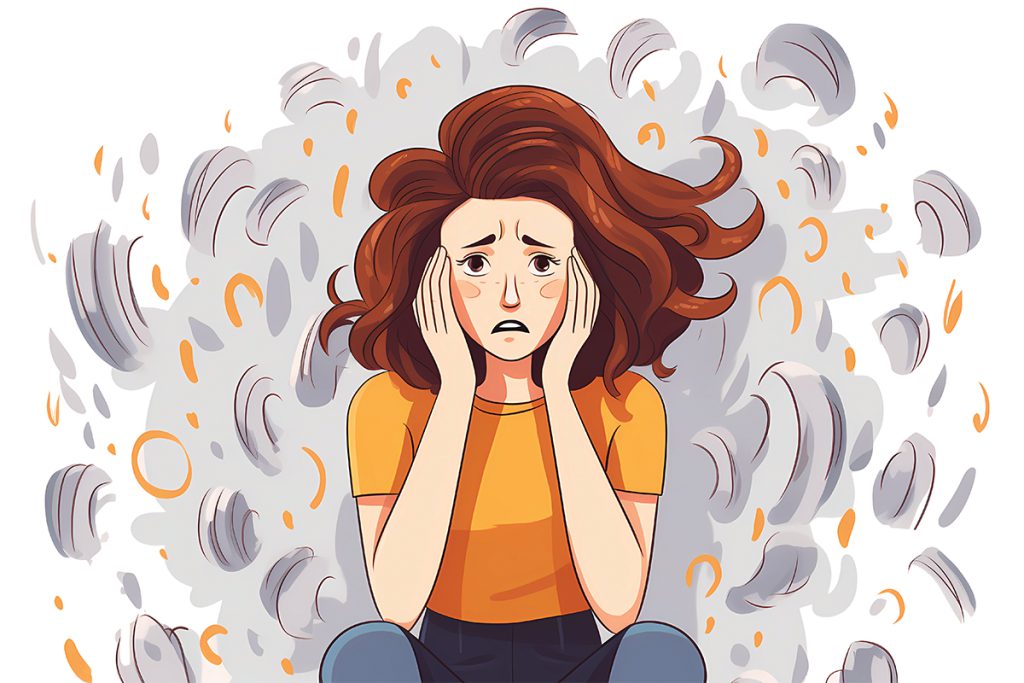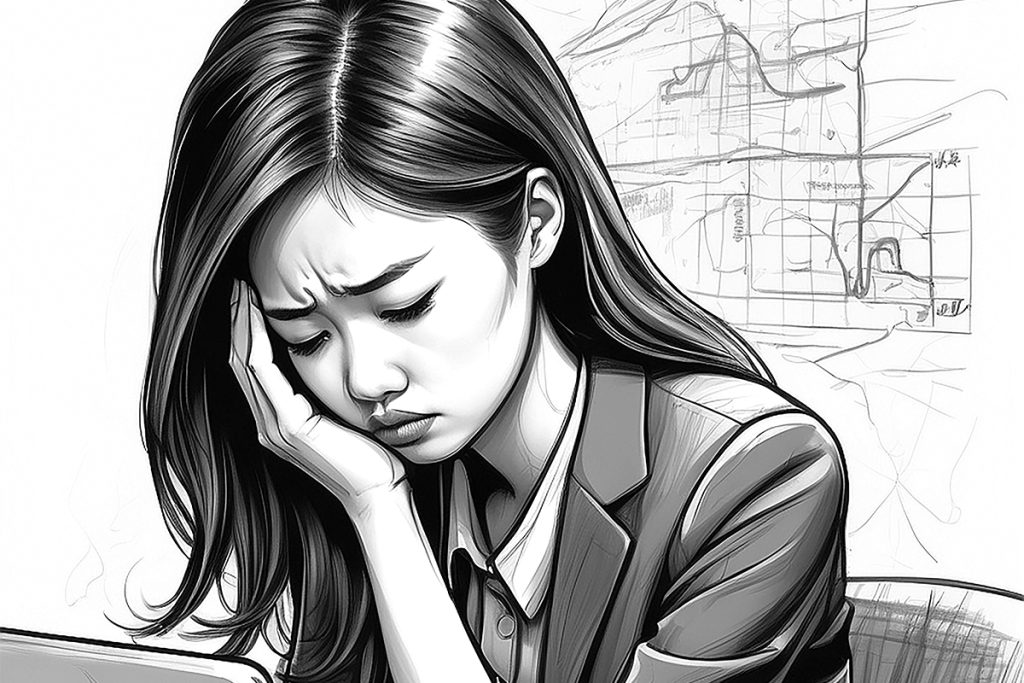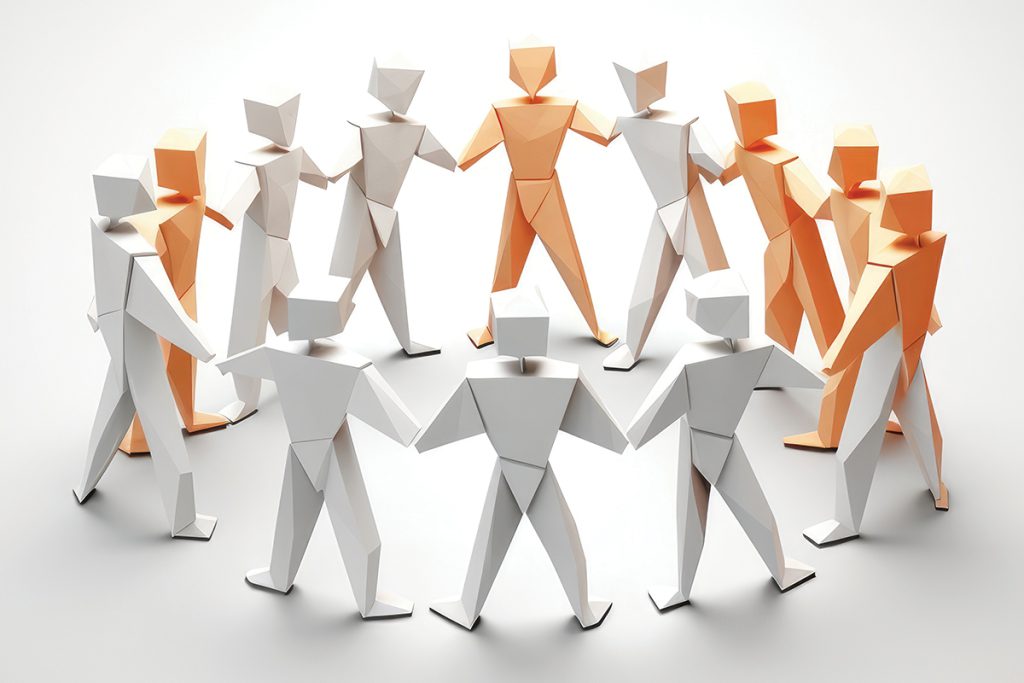Setting consistent boundaries at and away from work can leave you to benefit personally and professionally
Words by Sakshi Dhingra
We discuss work-life balance and read about this online quite often, and there are life coaches who primarily focus on quality decision making. In fact, one of the latest career pathways I stumbled upon is that of a sleep coach. And maybe there is a need for one, given how crazy work can get sometimes.
Truthfully, many professionals have gotten used to working too much. While being continuously connected might help us feel secure, connected, and informed at work and at home, it also means that we’re never really clock off. We react to emails beyond office hours, answer work calls from home, and work on weekends. The advent of remote work has further blurred the distinction between the end of the workday and the time on the clock.
Overworking can make you feel good, get you brownie points, or turn you into a workaholic, but this tendency should not stay long. Given the health risks that you would face in the long term, it is not worth it. Having stated that, your work and decision-making should follow a set timeframe.
While a person’s body and brain have an incredible capability for resilience and adaptability, they also have limitations and must be cared for in order to work properly.
Overwork creates tension
Stress prevents you from getting a goodnight’s sleep. Sleep deprivation, or not getting the essential 7-8 hours of unbroken sleep, disrupts the circadian rhythm.

Circadian rhythms are physical, mental, and behavioural changes that occur on a 24-hour cycle. When these cycles are disrupted, you have low energy until you obtain a full eight hours of sleep. Sleep deprivation and problems can cause hormonal imbalances and metabolic issues. These manifests themselves as high blood pressure, heart disease, obesity, and diabetes.
Do you think you’re one of those “lucky people” who can function on only five or six hours of sleep? You probably are not.
Too weary to cook or work out?
This is characteristic of overly busy days, since it interferes with your daily exercise, healthy diet, and other excellent habits.
When you’re overworked and exhausted, you’re more likely to make bad dietary choices. Working exercise feels like a hassle, and coffee helps you get through the day.
Stress is harmful for your health

Have you ever wondered why most MDs/CEOs are prone to heart attacks? Recently, there have been reports of top executives suffering from a cardiac disease at any age. A WHO survey found that those who work 55 or more hours per week have a 35% greater risk of stroke and a 17% higher risk of dying from ischemic heart disease than those who work 35-40 hours per week.
Lack of concentration impairs judgement
Overworked, anxious, and sleep-deprived individuals frequently exhibit poor judgment and fuzzy memory. You may have noticed a short temper after a hectic few days.
Intense emotional responses, snapping at your partner, or being quickly upset with coworkers are all indicators of exhaustion. This occurs when overwork leads to a lack of sleep, which affects the hippocampus, a brain region important in memory development and consolidation.
This causes you to lose attention and impairs your judgment.
Inculcating unhealthy Habits
Working more than 48 hours a week might lead to unhealthy habits, including increased risky alcohol consumption. Aside from alcohol intake, researchers discovered that lengthy hours were associated with smoking. It also leads to increased social media usage, which might jeopardize your ability to recuperate from stress when you are not working.
Overthinking about work can lead to depression, which can be exacerbated by physical tiredness, long hours, and unsociable shifts. Long hours and the stress of overwork can have major effects for employees, including clinical depression and suicide ideation.
“Karoshi” or overwork death
Karoshi is a Japanese term that translates to “overwork death” or “death from overwork”.
It refers to a phenomenon where individuals develop serious diseases and mental disorders because of working excessively for long hours, facing constant intense stress and pressures.
Why Overworking is Bad for Your Career
If better health and happiness aren’t enough of an incentive to do something about chronic overwork, it turns out overworking can have a legitimately negative impact on your performance.
Let’s dig deeper into the reasons why your productivity decreases when you’re overworked and stressed.
More input doesn’t necessarily mean more output
Do longer work hours equate to more work getting done? Occasionally, yes — but not when “overtime” becomes the norm. There are many articles online that show countries like Colombia and Mexico, which have lower productivity, had longer working hours and fewer paid holidays. On the other hand, countries like Norway and Luxembourg performed better with higher productivity per person, where work-life balance is prioritised and the standards of living are high.
You call in sick because you are
Overworked employees call in sick, either because they are actually sick or they’re too exhausted to work. Business coaches over the years have mentioned about the long working hours can negatively impact business performance as it leads to increased absenteeism and higher turnover rates. Employee productivity declines, and they become less motivated to go to work. This also causes overall business to suffer.
You lose sight of the bigger picture
Have you ever let a project consume you and your time? We’ve all been there. While it’s not bad to get consumed by a project occasionally, it becomes risky if you make it a regular pattern. When this happens, we lose sight of our long-term dreams and aspirations and channel our focus and energy into daily duties and tasks.
Our ambitions start to diminish. We develop a sense of resentment towards our job and the people we work for. It’s when employees may still physically show up for work but lack enthusiasm and passion for their tasks. They avoid taking on new responsibilities, stop contributing innovative ideas, and become less involved in team activities.
You pose a risk to yourself and others
Overwork and longer hours are significant occupational safety and health (OSH) hazards as they lead to fatigue. We’ve already established that tired people make more mistakes.
Work-related fatigue makes you less alert, increasing the likelihood of accidents and errors. This can be particularly risky if you’re working in physically demanding jobs or in a sensitive environment like construction, hospitals, or laboratories.
Studies in the US have shown similar findings: Overworked doctors are prone to making more errors, endangering patient safety and resulting in more lawsuits.
Overworking hinders creativity
A lack of sleep, stress, and other issues caused by overwork drains your energy and motivation and, ultimately, affects your creativity.
Research on overwork consistently shows that it can lead to decreased focus.
Why? Because creativity stems from a relaxed mind.
When you’re tired and overworked, you develop a myopic focus on completing immediate tasks, leaving little room for exploring new possibilities and thinking out of the box.

So, if you want to be creative, it’s important to limit your work hours, get a good night’s sleep, and take time off when you feel like your mind is being drained of creative thoughts.
Pro tip: When you do take time off, keep a notepad or a phone nearby. Be sure to note your ideas down quickly when creativity strikes.
Exhaustion makes multitasking harder
Your cognitive resources become depleted when your mind is exhausted, making it more challenging to switch between tasks and focus on multiple things at once.
Completing a single task takes longer. Therefore, the inability to be as productive as your usual self may add to your frustration.
Who is to blame for overwork?
If you are overworking, you are responsible for your health even when there is a lot of work to be done. The most critical step is to plan and prioritize the work. If you are feeling burdened, share your concerns with your immediate management. They are here to help and guide you.

Managers will want you to provide more than your KRA, which is good, but it will not be worth it if you lose your health. Have a chat with your direct or upper management about the things that take up your time and why you are unable to overdeliver. It is simpler for your supervisors to push you if you often answer “yes” in order to keep them satisfied. Focus on yourself while also getting stuff done. Don’t forget that all of us are replaceable.
What about company culture?
Candidates are usually interviewed for jobs, and it is not only the firm that is interested in having you join their team; the applicant should also be allowed to ask questions and do a thorough background check on the corporate culture before agreeing to come on board. A nice business culture is essential for retaining respect and peace of mind in any employment. Most individuals quit because they are not valued for their effort or there is no respect on the table. Do yourself a courtesy and learn more about the firm before saying ‘yes’.
Know When It’s Time to Go Cold Turkey
Working long hours might feel fulfilling, especially if we believe it moves us closer to being the perfect employee. However, it is harmful to our mental and physical health and can lead to premature burnout.

Research consistently reveals that we work smarter, not harder, while maintaining a work-life balance. Remember that your mental, physical, and emotional well-being should never take second place to job obligations.
Put yourself first, organize your priorities, and keep yourself accountable to improve your health and career in the long term.


